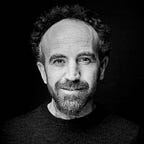The 3 assets of Seed-specialist VCs
Frst is a seed-stage VC firm focused on supporting a new generation of French entrepreneurs with global ambitions.
We meet with hundreds of entrepreneurs every year, so we get to pitch Frst several times a day. One of the questions we are most frequently asked is the following:
“Why did you choose to be Seed-specialist rather than a Multi-stage fund?”
Here are the three reasons underpinning our choice:
1. Maximization of the Series A terms
2. Laser-focused expertise on key Seed topics
3. 100% committed since Day 1
Let’s dig in.
Maximization of the Series A terms
“Multi-stage” funds like to invest in Seed rounds mostly because it is cheap: the invested amount is minimal compared to the fund’s scale, so if the startup fails they will not lose much. But if it takes off, they will be in the pole position to preempt the Series A without any competitive process — which for good measure generally ends up with a lower valuation too, given the reduced competition.
And we have not even mentioned the signaling risk: if a Multi-stage fund decides not to preempt the Series A while it has access to more information than its competitors, it will send a bad signal that might undermine the momentum of a fundraising process and put the entrepreneurs in a tight spot.
In contrast, a “Seed-Specialist” fund like Frst builds its ownership with its first ticket, and never leads the Series A of its portfolio companies. So there is no signaling risk, and the VC has a very clear interest in optimizing the terms of the next round (amount, valuation and identity of the lead investor), by generating as much momentum and competition as possible around the startup.
Laser-focused expertise on key Seed topics
Multi-stage funds tend to mistake Seed-stage startups for micro-companies, to which one can apply rational company-building playbooks.
In reality, it is absolutely not the case: a Seed startup is not a company, but a machine to find Product-Market Fit, where most traditional laws of company-building do not apply.
For their part, a Seed-Specialist investor has already experienced the exact same sequence dozens of times. So not only are they fully at ease in this uncertain, experimental and fundamentally counter-intuitive environment; but they are also able to tap into the cumulated experience of all the entrepreneurs they have worked with who have gone through the same situations before.
100% committed since Day 1
An investor has two scarce resources: their money and their time. So they tend to allocate these two resources proportionally to the potential of each startup of the portfolio.
As mentioned before, for a Multi-stage fund, the amount invested in a Seed round is not significant compared to the fund’s scale. So unless the startup proves it is on a promising trajectory, it is very unlikely that it will rank among the top priorities of the fund.
In contrast, the economic interest of a Seed-specialist fund comes from its initial investment: this is the best guarantee entrepreneurs can have that the investor will be 100% committed from day one, in order to maximize their chances of success across the Seed phase.
Good intentions rarely work as well as good incentives.
In conclusion, we can sum it up more simply: everything is about incentives. To quote Paul Graham:
That’s why at Frst we made this simple choice, to align our incentives as close as possible to those of the founders who honor us with their trust — so that there can be no doubt on what motivates us 💪.
